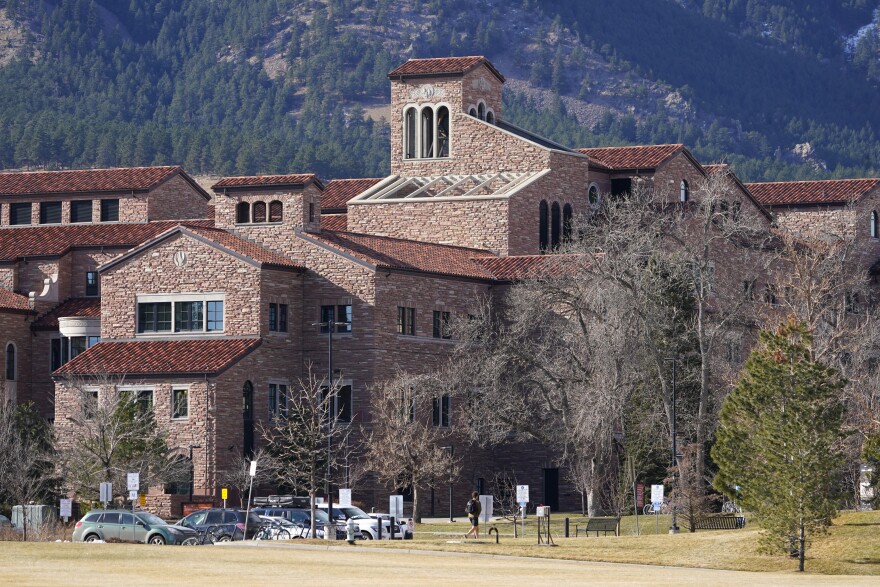More than 300 professors and historians on Thursday blasted University of Colorado administrators for last fall’s unceremonious firing of Patty Limerick from leadership of the Center of the American West, which she founded in 1986.
“Now, more than nine months have passed, no evidence has been revealed and it has become even clearer that the impact of the dean’s actions has been irreparable and far-reaching,” reads the letter from 306 academics, researchers and historians from across the country sent to CU leaders and Glen Krutz, who removed Limerick from her role as director of the Center of the American West soon after he was named dean of the Boulder campus’ College of Arts and Sciences. The firing led to the resignation of all five members of the center’s executive committee. “The Center of the American West is currently fading, and while it may yet be resuscitated, there will be lasting loss and damage to CU Boulder and the fields of Western history, applied history, and countless others.”
The letter comes two weeks after professor Joel Hartter announced he was stepping down as director of the Masters of the Environment graduate program, or MENV, that he developed and led at CU since 2016.
In Hartter’s letter to his advisory council, he said the MENV program has seen enrollment increase by 800%, generating $28 million in tuition. In 2021 Hartter launched the Outdoor Recreation Economy (or ORE) Program to focus on economic development, public lands policy and sustainable business. Both the MENV and ORE program have 100 professors and 15 staff members for 220 residential students and 100 online students.
“I exit the directorship with my head held high, and extremely proud of what we have accomplished together,” Hartter wrote, saying that the complexity of managing both the MENV and ORE programs “as well as the university’s expressed interest in my involvement in developing additional degree programs” led him to reject the school’s offer to continue as faculty director. “I could not in good conscience accept the contract.”
Luis Benitez, the first director of the Colorado Outdoor Recreation Industry Office who served on Hartter’s advisory board and urged the creation of one of the country’s first graduate programs focused on the outdoor recreation industry, said he expects a response similar to Limerick’s sudden dismissal to swell as news of Hartter’s unexpected departure spreads.
“I am extremely disappointed in CU’s treatment of both Joel and Patty,” said Benitez, who will teach a graduate class for the MENV program this fall. “These are titans in our communities that CU has cut off at the knees. Our industry is one of family and this will not go unnoticed.”
A September 2022 report by internal auditors at CU Boulder could not find evidence to support claims that Limerick had mishandled finances at the Center of the American West, but did conclude the professor violated ethics around “prudence and integrity in the management of university resources.”
The investigation followed a complaint by a staffer of the center who took issue with Limerick’s treatment of center employees. Limerick, who remains a professor at CU Boulder, said the investigation was “clandestine” and “completely mysterious.”
“I’ve never seen such an un-transparent process,” she told The Sun in October last year. “Why take a successful program that had developed a level of trust between the university and a public that was often skeptical of the university and knock it off the rails? I have no idea why anyone would want to spend so much time and effort on derailing a successful organization.”
The letter to CU Boulder’s president, chancellor and provost said the staff complaints leveled against Limerick failed to consider “the churn in the U.S. labor market that has been unprecedented in the midst of a global pandemic.”
The letter also pointed to “the long history of sexism” in academia.
“Many of the complaints brought against Limerick in released reports were complaints about performing tasks that men in power regularly ask staff to perform. Rightly or wrongly, Limerick’s removal as a woman in power for something men regularly do without recourse is notable,” reads the letter, which also says Limerick’s career “has been bookended by sexism and misogyny.”
“From the outset, Limerick has navigated a workplace of toxic masculinity and rigid patriarchy, one that many young women who followed her hoped she had conquered. The action of Krutz against Limerick, who is a pillar of the field, nullifies any idea of progress for women in the academy.”
The letter writers — mostly professors from schools in the West and Southwest — said the unraveling of the Center of the American West could have ramifications beyond CU “with the loss of a hub of intellectual and practical knowledge” limiting opportunities to train future leaders in applied history.
“Ultimately this story is much broader than Limerick, the Center of the American West, or CU Boulder,” the letter reads. “It reflects a dangerous national trend of rash administrative decisionmaking that is hollowing academic and university programs.”





